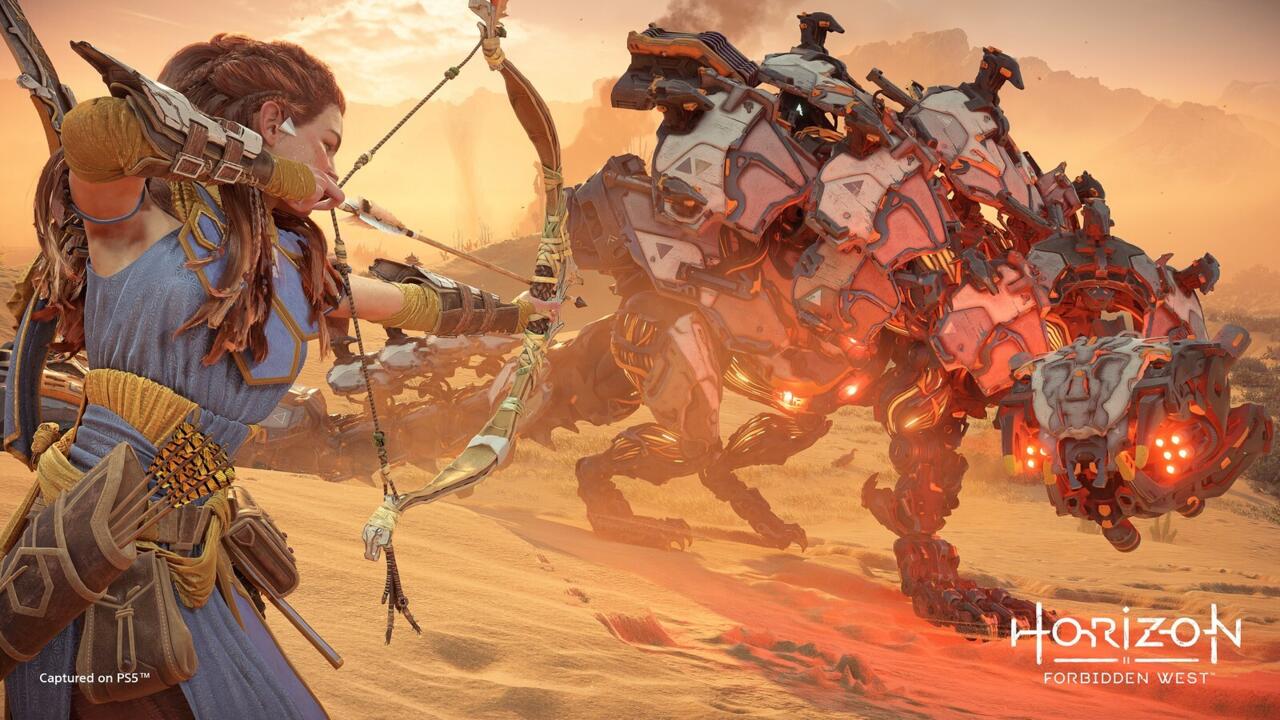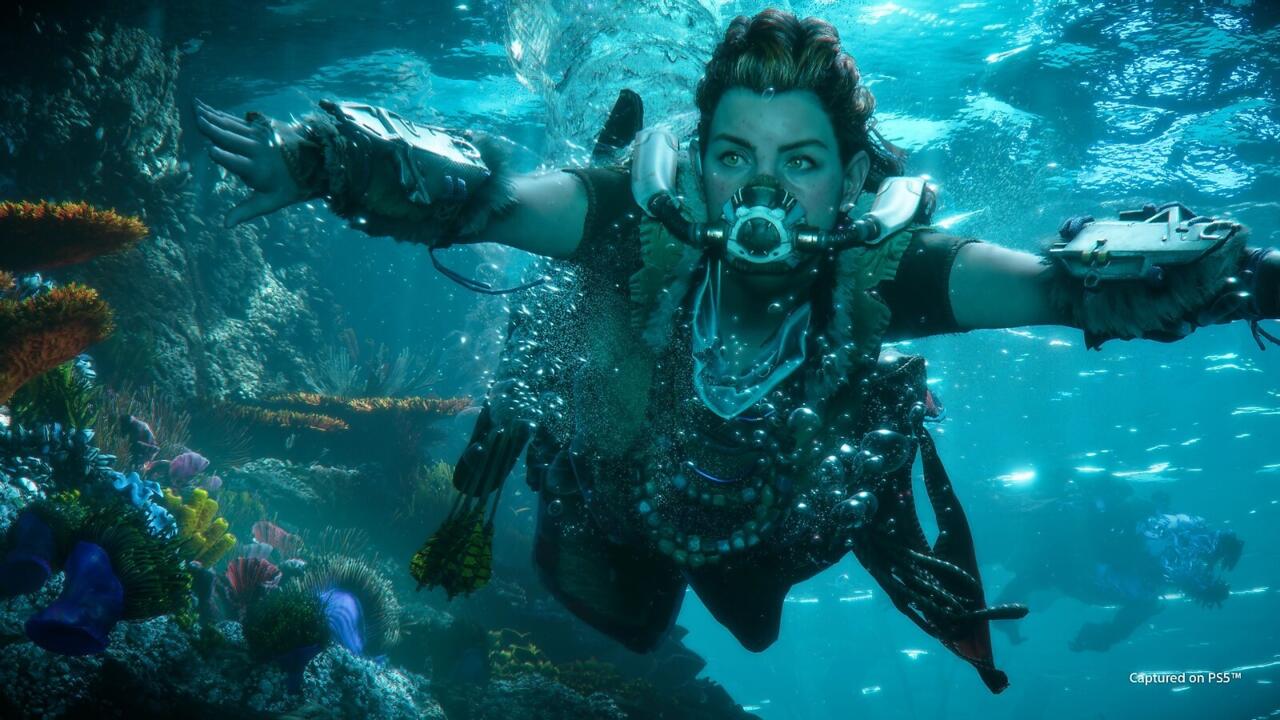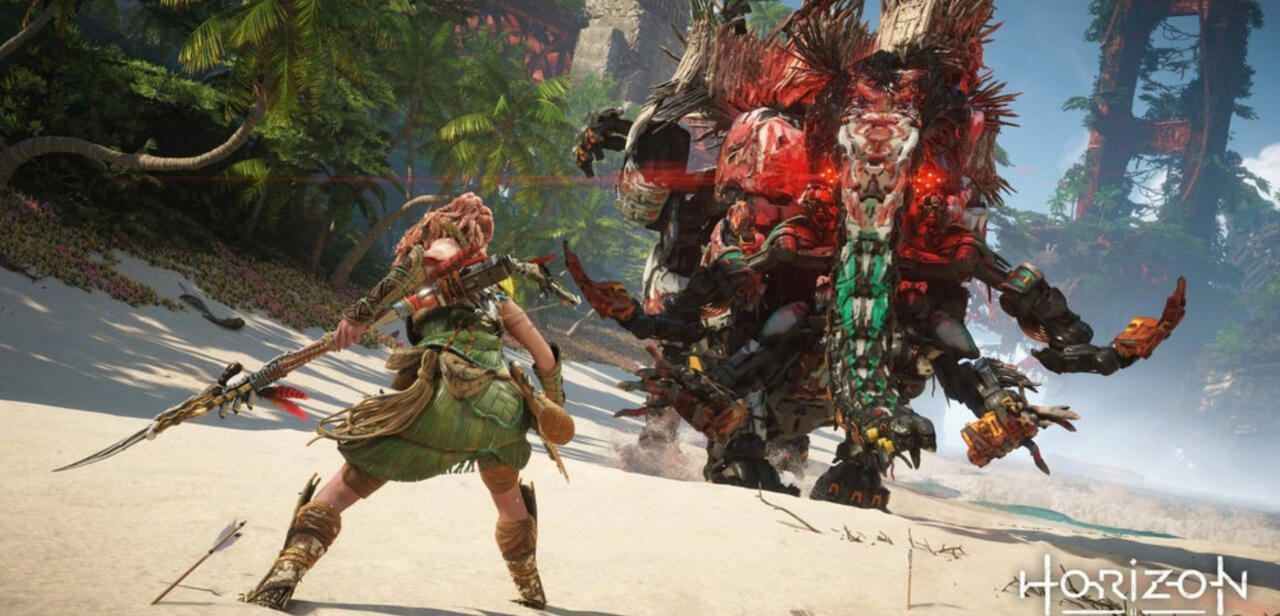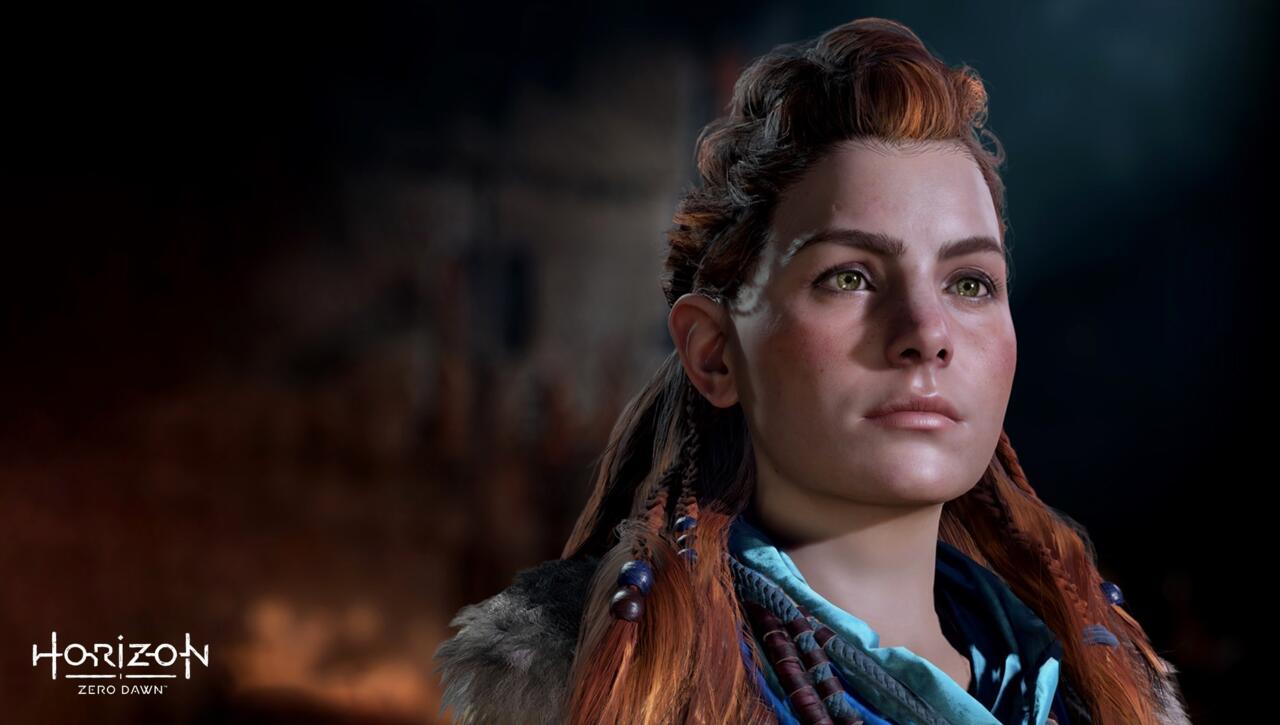Sony's Horizon Zero Dawn Show Could Be Great--If It Can Avoid These Pitfalls
Past mistakes in sci-fi and fantasy storytelling offer a guide for how to keep Horizon Zero Dawn faithful to its intent.
After years of intensely isolationist behavior, Sony's PlayStation arm is branching out from just making video games for its own system, looking to capture more eyeballs from wider culture. Some of that is releasing their previously-exclusive games on PC, but they're also getting into television. A Last of Us television show is already well underway for HBO, and the company recently revealed that it plans to make a show based on Horizon Zero Dawn with Netflix. Recent rumors suggest that it could be a prequel.
What will that show look like? Sony and Netflix have an uphill battle on their hands as they try to bring this sci-fi adventure to life unless they actively work to avoid the pitfalls of past productions.
Here's the Pitch

According to games journalist Jeff Grubb of Giant Bomb, the story is currently designed with a split timeline. "The show as pitched right now is called Horizon: 2074, and it will split its time between the timeline you see in the games and the timeline where things begin to fall," Grubb said on a recent episode of his GrubbSnax podcast. "And the idea is that this is not a reboot, a remake, or a sort of reimagining of the game's storyline; it will take parallel and sort of explain other elements that happen in the game."
First, we need to spoil Horizon Zero Dawn. It's been five years, you had your chance! The Horizon games are, aesthetically, all about the protagonist Aloy fighting large robotic creatures that look like dinosaurs, oxen, and other burly prehistoric beasts. The backstory, meanwhile, takes place a thousand years earlier and tells the story of AI engineer Elizabet Sobeck in a battle of morals, corporations, and ego with capitalist and inventor Ted Faro.
Ted Faro has created a self-replicating AI that uses biomass--living stuff--without a killswitch. Experts quickly conclude that Faro's AI cannot be defeated and that it will inevitably consume all life on earth. Instead of making talking about the problem illegal to protect shareholders, the government gives Eliabet all the resources she needs as an expert AI engineer to create a sort of life seed--an AI-powered system that will restart life once Faro's machines run themselves ragged and shut down.
This show could be a great way to flesh out the game's backstory--or a terrible idea. It has a lot going for it, but just as many potential pitfalls. The show will have to be careful not to fall into the traps of doing too much backstory and doing too much boardroom drama, while also getting the very necessary CGI just right. At the same time, there's a ton of potential here for a fun new take on the story and characters.
The Star Wars Problem

The original Star Wars trilogy planted countless intriguing seeds of galactic history. While the once-canonical novels that followed sought to explore the aftermath of the Emperor's death, the Star Wars universe has been focused on what happened before Luke met Obi-Wan before that fateful double sunset. It's become so focused that it's starting to feel like Lucasfilm is looking to document every moment from the first appearance of Chancellor Palpatine up through his second death battling Rey. In this time, single lines of dialogue in the original trilogy have turned into entire films and TV series, like Rogue One, Solo, or the currently-airing Obi-Wan Kenobi series.
While many of these moments are interesting, they turn into opportunities for the deep fiction to contradict itself and prevent the story from moving forward--it's always connecting two points that we already know. Horizon Zero Dawn presents us with a mysterious world of these mechanical beasts and, as we explore it, fills out its backstory through audio logs that reveal some really big picture information about what brought the world to this post-post-apocalypse, and some small intimate moments set during the very literal end of all life on earth.
Where Star Wars often struggles, and where Horizon could struggle is in detailing all the stuff between the very big and very small. Even in the rumored pitch, we see the potential for this. In the Horizon timeline, all life is eradicated by 2065, and it's not for a few decades that the AI that regenerates life will begin doing so. Horizon: 2074, with that in mind, would just be documentary footage of gigantic squid robots aimlessly wandering a desolate landscape until they run out of fuel.
Danger: Boardroom Drama Ahead

But let's set aside the continuity problem the supposed pitch name introduces and assume someone just didn't read the timeline closely and really means "Horizon Before Everything Got Bad," because that's really what the title means.
So let's say they go ahead with it.
It sounds like a battle of titans, but it would be incredibly easy to turn this into a boardroom battle; there's tons of corporate espionage built into this backstory already, and that stuff is relatively easy to write. Back when Marvel and Netflix were still collaborating on shows, Iron Fist ran into exactly this problem. Instead of giving us a show about a guy in a colorful jumpsuit getting into kung fu battles, we ended up with an entire season set in board rooms. Horizon's split between the past and the present will require constant vigilance and a generous budget to make sure that the writers aren't forced back to corporate drama over and over.
On the other hand, choreographing fights is one thing. Building monstrous CGI robots for Aloy to fight will be difficult. Certainly not out of the range of modern CGI houses, but only if Netflix and Sony are willing to put in the time and money to make it look right. Mixing CGI and live-action content is tough, and all the way from the CW's superhero shows up to an epic film like Dune, it's as easy to whiff it on the computer effects as it is to nail them.
The showrunners would have to strike a careful balance here to make the CGI look as good as it needs to without ending up with a Lord of the Rings-sized budget, and to make the near-future corporate battle feel like a change of pace instead of a way to ease that budget. While there are notable exceptions like Stranger Things, many of Netflix's VFX fueled shows like Jupiter's Legacy and Shadow & Bone have fallen flat at least in part due to ugly VFX distracting from the stories. Sony's other big television adaptation of a beloved game, The Last of Us, is with HBO, and has a much more straightforward path ahead of it--over a decade of The Walking Dead has set forth a pretty clean template for handling post-apocalyptic shows with zombie-like creatures and practical effects.
Two Heroes

While there are all of these pitfalls, there's also potential for a really fun, resonant show. Aloy, a literal clone of Elizabet, is the main character of the games; fans of the games know her really well by this point. She's determined, thoughtful, self-sufficient, and tough as nails. Elizabet is the main character of the backstory. We only see glimpses of her, but we get to know her well enough through her actions. She's awkward and intense, but she's smart enough to intimidate Tony Stark and Reed Richards and has a love for life and humanity big enough to put a lump in anyone's throat. One is the picture of athleticism, and the other is an intellectual giant. Tatiana Maslany earned herself an Emmy Award in 2016 for playing a bunch of different versions of the same character in Orphan Black. Twin Peaks turned that idea into a whole mythology. Our dearly departed Legends of Tomorrow used it to give talented actors new characters to play with. With the right actor, the Elizabet/Aloy dichotomy could make for a seriously strong and compelling performance.
While Westworld has stumbled more than walked at this point, one of the fun parts about it was the visual separation between the park and the stuff behind the scenes--the beauty of nature and the starkness of a laboratory. With Horizon, we have exactly that in both look and tone; Aloy's world is in danger, but it's full of beauty and potential even with all the monsters and warring tribes. She grew up in a small tribe, but her world grows and grows as she explores and experiences new things. Elizabet's world is doomed and will get smaller with each passing day as Faro's machines literally eat the world alive, but we know her plan will work, so there's this bright light of hope inside the darkness.
It may be an uphill battle for the Horizon Netflix show, regardless of what pitch ends up being developed into a series. That doesn't mean it can't climb that mountain, though. After all, Netflix was able to adapt The Witcher's massive fantasy landscape into a really fun show. Who's to say Horizon isn't next?
Got a news tip or want to contact us directly? Email news@gamespot.com
Join the conversation